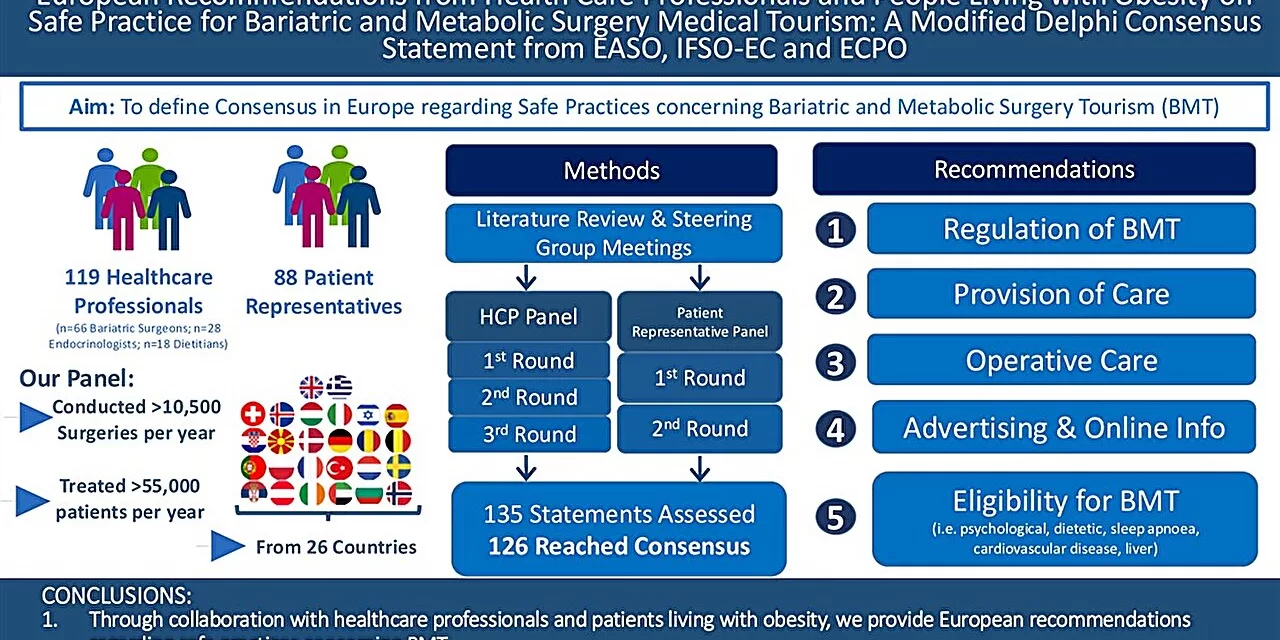Obesity surgery, also known as bariatric and metabolic surgery, has become one of the leading reasons for medical tourism, as individuals seek cost-effective procedures abroad. However, researchers emphasize that only approved centers should perform recognized procedures to safeguard patient safety.
Risks Associated with Obesity Surgery Tourism
While medical tourism offers affordability and reduced waiting times, it also poses significant risks. Patients undergoing obesity surgery abroad have faced complications such as infections, scarring, and, in severe cases, fatalities. The lack of published data in Europe regarding the safety of such procedures has raised concerns among medical professionals.
In countries like the United Kingdom and Ireland, extended waiting periods for obesity surgery have prompted many to seek treatment abroad. However, due to the unregulated nature of medical tourism, health care professionals in the U.K. often lack essential post-surgery documentation from foreign medical facilities, complicating follow-up care.
A Call for Regulation and Safety Standards
Recognizing these concerns, key organizations—the European Association for the Study of Obesity (EASO), the International Federation for Surgery of Obesity and Metabolic Disorders European Chapter (IFSO-EC), and the European Coalition for People Living with Obesity (ECPO)—have collaborated to establish guidelines for obesity surgery tourism. Their consensus paper, published in the International Journal of Surgery, outlines recommendations for regulating the industry.
Dr. Laurence Dobbie from King’s College London, alongside leading experts from Istanbul University-Cerrahpaşa, St. Clara Hospital in Switzerland, and Dublin-based ECPO, contributed to the research. Two expert panels—one consisting of health care professionals and the other of patient representatives—developed safety standards with input from 119 professionals and 88 patients across 26 countries.
Key Recommendations
The research identified six critical areas of focus, including regulation, provision of care, eligibility criteria, operative care, advertising standards, and patient education. Some of the key recommendations include:
- Regulation: Bariatric surgery should only be conducted at centers accredited by EASO or recognized national surgical societies. Only approved procedures should be performed.
- Provision of Care: Surgical units should provide at least two years of follow-up care, ensuring patients receive proper post-operative support.
- Eligibility: Patients with a BMI below 30 kg/m² should not undergo bariatric surgery abroad.
- Operative Care: Patients should remain in the location of their surgery for at least five days post-operation to manage complications before traveling home.
- Advertising and Transparency: Bariatric centers should disclose accreditation details and financial costs to promote informed decision-making.
- Patient Rights: Patients should receive comprehensive medical records, access to translators, and a clear understanding of the risks involved.
Expert Opinions and Future Implications
Dr. Dobbie emphasized the urgency of implementing these guidelines, stating, “Across Europe, many people turn to medical tourism due to long waiting periods. However, some providers fail to meet basic safety standards, leading to severe complications and, in some cases, fatalities.”
EASO President Professor Volkan Yumuk highlighted, “Too many unsafe surgeries have been carried out abroad. These guidelines aim to ensure that obesity surgery meets the highest safety standards.”
Bariatric surgeon Professor Ralph Peterli echoed these sentiments, stressing the need for continued interdisciplinary collaboration to minimize risks associated with surgical tourism.
Professor Barbara McGowan emphasized that the new guidelines serve as a crucial tool to raise awareness about safety measures and aftercare, aiming to reduce complications and improve patient outcomes.
Conclusion
As medical tourism continues to grow, implementing standardized safety practices for obesity surgery is essential. The recommendations set forth by EASO, IFSO-EC, and ECPO aim to protect patients from unnecessary risks and ensure that obesity surgery, regardless of location, meets recognized medical standards.
Disclaimer: This article is for informational purposes only and does not constitute medical advice. Patients considering obesity surgery abroad should consult qualified health professionals and thoroughly research accredited centers before proceeding with treatment.











